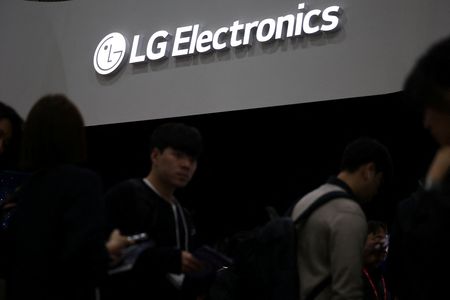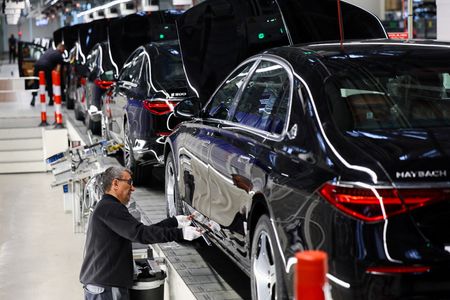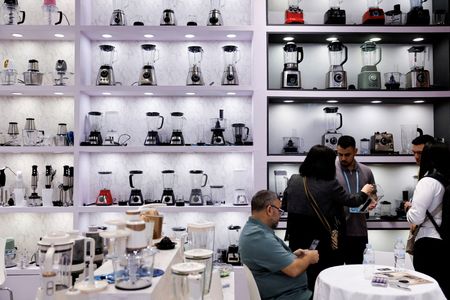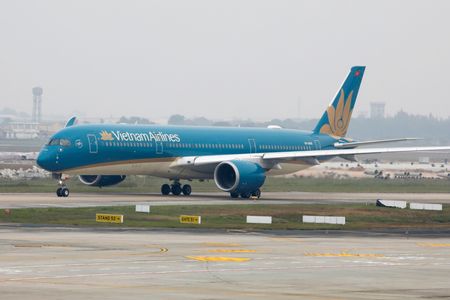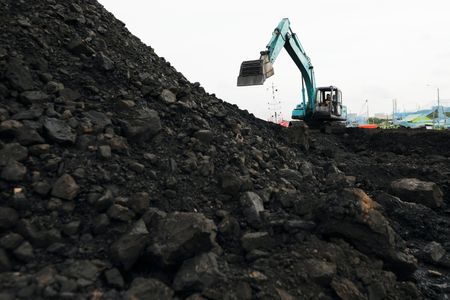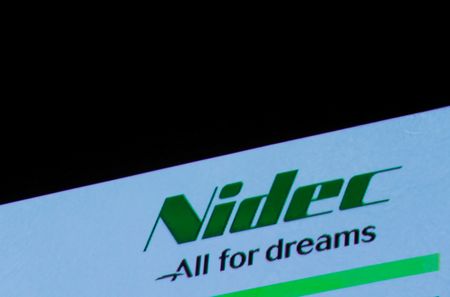By Jihoon Lee
SEOUL (Reuters) -A South Korean delegation will meet U.S. counterparts on Thursday for an opening round of trade talks, with cooperation on shipbuilding and energy expected to be on the agenda, and possibly shared defence costs, as Seoul seeks lower tariffs.
South Korea, which faces 25% U.S. reciprocal tariffs, is among the first countries the Trump administration has initiated trade talks with, after its first face-to-face discussions last week with Japan, another key Asian ally slapped with 24% tariffs.
“I think this is only going to be the opening salvo of negotiations,” said Tom Ramage, Washington-based economic policy analyst at the Korea Economic Institute of America (KEI).
Given how Seoul is competing with other countries and faces a 90-day timeframe before a tariff pause is due to end, he said talks were likely to be extended, and may even result in some form of renegotiated U.S.-Korea Free Trade Agreement.
South Korea, a key U.S. ally, has often been singled out by Trump for its trade surpluses with the United States, which hit a record high of $55.6 billion in 2024, up 25% from 2023 and nearly five times higher than in 2019.
Finance Minister Choi Sang-mok and Industry Minister Ahn Duk-geun are due to meet with U.S. Treasury Secretary Scott Bessent and Trade Representative Jamieson Greer in Washington, D.C. at 8 a.m. (1200 GMT), on the sidelines of an International Monetary Fund and World Bank Group gathering.
The meeting was arranged at the request of the United States, Seoul said, and comes after U.S. President Donald Trump and South Korea’s Acting President Han Duck-soo discussed shipbuilding, energy purchases, an Alaskan gas project and defence payments in a phone call on April 8.
“The government will do its best to find a ‘win-win’ between the two countries, with focus on three areas of trade balance, shipbuilding and LNG, under the principle that the national interest is the foremost priority,” Han said on Thursday.
Since the call, South Korean officials have touted shipbuilding as a “very important card” it holds. South Korea is the world’s second-largest shipbuilder after China, and Trump has specifically called for cooperation in the sector since returning to power.
At the same time, Seoul has taken a more cautious stance on the Alaskan gas project, saying participation could be part of a negotiation package, while noting questions about its profitability.
South Korea’s auto sector is seen as particularly vulnerable to tariffs, as the country’s car sales to the United States account for 49% of its total auto exports.
The U.S. has already applied 25% tariffs on autos, prompting Seoul to announce emergency support measures to help major exporting companies such as Hyundai Motor and Kia.
On the issue of payments for the 28,500 U.S. troops South Korea hosts, Ahn said on Wednesday Seoul was prepared if the issue was brought up, but Foreign Minister Cho Tae-yul told lawmakers later it would not be considered for a package deal and should be dealt with separately.
In preparation for discussions on non-tariff barriers, Seoul’s delegation will include officials from eight different ministries: finance, trade, foreign affairs, technology, transport, environment, agriculture and health.
South Korea is among three Asia-Pacific countries that have a comprehensive trade pact with the United States, eliminating nearly all tariffs between the two countries. It was first signed in 2007 but revised in 2018 during Trump’s first term after he said the initial agreement was a “horrible deal”.
ACTING LEADERSHIP
The trade talks come as South Korea remains embroiled in its worst political crisis in decades.
A snap presidential election will be held on June 3, after former President Yoon Suk Yeol was impeached and removed from office this month over his failed declaration of martial law.
“We basically expect concrete progress on the negotiations between the Korean and the U.S. government to come out only after the snap presidential election,” said Oh Suk-tae, an economist at Societe Generale.
Oh said it would be especially difficult for South Korea to make any firm commitment on energy projects and defence costs under an acting president.
Han has, however, in interviews this month expressed willingness to reach a deal, saying the country will not fight back against Washington as it owes the U.S. for its recovery from the 1950-1953 Korean War.
He has also not ruled himself out of contesting the election.
“Should acting president Han Duck-soo appear to successfully negotiate tariff waivers for South Korea, particularly for its auto exports, he would increasingly position himself as a presidential candidate,” said economists at S&P Global Market Intelligence.
See separate FACTBOX on the trade talks.
(Reporting by Jihoon Lee and Hyunjoo JinEditing by Ed Davies and Shri Navaratnam)





